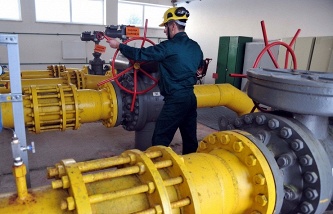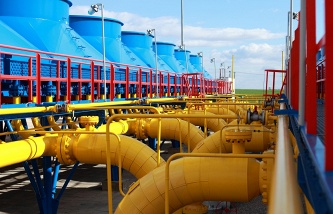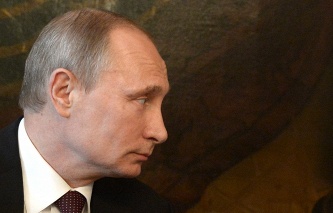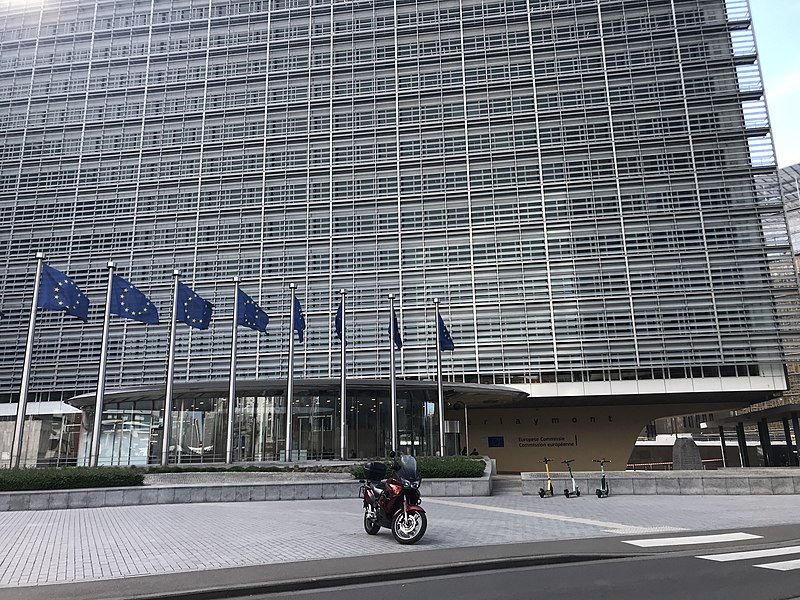
3D printed sausages on the menu at Europe’s biggest science event in …
June 26, 2014Shooting the messenger
June 26, 2014BRUSSELS, June 25, /ITAR-TASS/. Europe’s energy independence from Russia is impossible in the short term, EU Energy Commissioner Guenther Oettinger said on Wednesday, June 25, at a roundtable on EU energy security.
However he reiterated Europe’s position that the construction of the South Stream gas pipeline should be suspended until it was brought in line with the EU rules.
The European Commission in November 2013 began studying the agreements signed by Russia and South European countries for the construction of the South Stream pipeline for their compliance with the Third Energy Package, which Russia has already contested in the World Trade Organisation.
Russian Permanent Representative to the European Union Vladimir Chizhov told ITAR-TASS that the European Commission had ignored the fact that the inter-governmental agreements on the pipeline had been concluded in 2008, a year before the Third Energy Package became effective, and, in defiance of international legal practices, applied it retroactively.
A month ago, the European Commission said it had doubts that the tender for the construction of the South Stream pipeline in Bulgaria, won by a consortium of Bulgarian companied led by Russia’s Stroytransgaz, had been conducted in accordance with the EU rules.
Chizhov said that the Bulgarian government had suspended the construction work on June 8 only after talks with a group of American senators, including John McCain, who is known for his pronounced anti-Russian views.
“Stroytransgaz is included in the American sanctions list and is not included in the European one,” Chizhov said, adding that this situation was “a test for the European Union’s ability to conduct its policy independently from the United States”.
“As for the European Commission’s complaints, it has so far only said that it had doubts about the compliance of the tender terms with the European competition rules. I do not know the details of the contract and the exact terms of the tender, but I doubt that the Bulgarian lawyers could make such a blunder,” Chizhov said.
He believes that “this is a purely political decision”.
Replying to the European Commission’s complaints, the Bulgarian government said in a statement that the inter-governmental agreement on the South Stream project in the country, signed in 2008, did not grant any exclusive rights, concessions or tenders to the company South Stream Bulgaria which will own the pipeline, and therefore it was not in breach of EU legislation.
The statement also said that none of the EU laws had been broken by creating South Stream Bulgaria by a government decision in 2010.
The contract to build the South Stream gas pipeline in Bulgaria is fully in line with European legislation, the Bulgarian Ministry of Economy and Energy said.
“The position of the ministry has been stated many times – the implementation of the South Stream project is important for Bulgaria both for diversifying gas supplies and from the economic point of view,” the ministry said.
“This is why during the talks with Russia in October 2013 Bulgaria, as an EU member state, could reach an agreement between the Bulgarian Energy Holding and Gazprom, under which the South Stream design company will make the gas pipeline capacity available for use by a third party as required by the Third Energy Package. This clearly shows compliance with our commitment to abide by European legislation,” the ministry said.
Bulgarian Minister of Economy and Energy Dragomir Stoynev said “the project will be implemented by European rules and will not violate European legislation” and stressed that “the work will be as transparent as possible”.
A spokesperson for the European Energy Commissioner, Marlene Holzner, said in December 2013 that the start of the work to build the South Stream gas pipeline in Bulgaria and Serbia did not run counter to European anti-trust legislation all by itself, but the agreements between Russia and EU countries on its construction were not consistent with European legislation and needed correction.
She said the European Commission would not interfere in the construction of the gas pipeline but its operation would have to comply with European requirements.
Holzner also noted that the construction of the pipeline might be complicated by growing concerns among investors and a possible refusal by banks to provide loans for the project due to the risk of legal problems in the future.
She said, however, that the European Commission was ready to provide assistance to Russia and EU southern countries in correcting and finalising the South Stream agreements.
The spokesperson named three key faults in the agreements connected with the EU Third Energy Package. The main complaint concerns the EU ban on the operation of transport energy infrastructure for companies that produce energy resources. Under the agreements, the pipeline will be operated by Russia’s gas producer Gazprom.
The second problem is that the agreements do not specify the terms of access to the pipeline for companies from third countries. The third problem is the issue of transit tariffs.
South Stream will be built across the Black Sea to South and Central European countries to diversify gas supplies to Europe and reduce the dependence on transit countries.
To build the onshore sections of the pipeline, Gazprom has signed agreements with Bulgaria, Serbia, Hungary, Greece, Slovenia, Croatia, and Austria.
The South Stream Offshore Pipeline will run through the Black Sea from Russia to Bulgaria and have a total length of 930 kilometres. An environment impact assessment (EIA) in accordance with national environmental legislation is being conducted in Russia, Turkey and Bulgaria. In addition, South Stream Transport is undertaking an Environmental and Social Impact Assessment (ESIA) in alignment with the standards and guidelines of international finance institutions. This will involve an ESIA Report for each Sector of the Project and a consolidated document for the entire South Stream Offshore Pipeline to ensure a consistent approach.
South Stream, initially conceived ENI and Gazprom, later joined by Electricite de France and German Wintershall AG, will eventually take 30 billion cubic metres of Russian natural gas a year to southern Europe.
The project stipulates for the offshore gas pipeline section to run under the Black Sea from the Russkaya compressor station on the Russian coast to the Bulgarian coast. The total length of the offshore section will be around 900 kilometres, the maximum depth – over two kilometres and the design capacity – 63 billion cubic metres. There are two optional routes for the onshore gas pipeline section: either northwestward or southwestward from Bulgaria.
In order to feed the required amount of gas to South Stream, Russia’s gas transmission system throughput will be increased through the construction of additional 2,446 kilometres of line-pipe and 10 compressor stations with the total capacity of 1,473 MW. This project has been named South Corridor and will be implemented in two phases before December 2019.
The offshore section of the pipeline, which will run in part along the seabed and reach the maximum depth of 2,200 m, will be 931 km long. Each of the four parallel strings of the pipeline will consist of 75,000 pipes, each 12 m long, 81 cm in diameter, 39 mm thick and weighing 9 tonnes.
The construction of South Stream started on December 7, 2012 is scheduled to be completed by 2015. The overall capacity of the marine section of the pipeline will be 63 billion cubic metres a year. Its cost is about 16 billion euro. The pipeline will go on onshore in the area of the Bulgarian city of Varna.
Gazprom’s share in the joint venture South Stream Transport B.V., which has been created to plan, build and operate the pipeline, is 50%, Italian ENI has 20%, French EDF and German Wintershall Holding GmbH each holding 15%.





